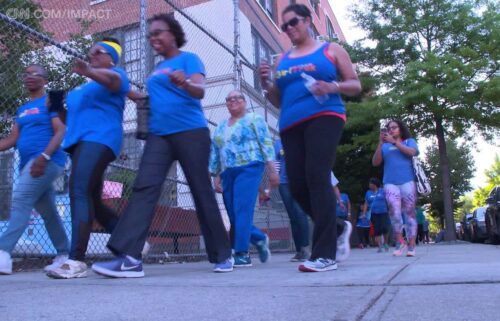The Smithsonian is apologizing for how it amassed its vast collection of human remains
By Harmeet Kaur, CNN
(CNN) — The head of the Smithsonian Institution is apologizing for the dark history behind its collection of human remains.
In a recent Washington Post op-ed, Lonnie G. Bunch III, secretary of the Smithsonian Institution, addressed how the institution amassed a collection of tens of thousands of body parts during the first half of the 20th century — taken largely from Black and Indigenous people, as well as other people of color, and mostly without their consent.
Bunch’s apology on behalf of the institution comes after a Washington Post investigation last week revealed that the Smithsonian’s National Museum of Natural History is currently in possession of at least 30,700 human body parts, including 255 brains, from people in countries such as the Philippines, Peru, Germany and the US.
Most of the remains, the Post found, were collected in the early 1900s under the direction of anthropologist Ales Hrdlicka, who sought to advance his now-debunked theories that White people were superior to people of color.
“It was abhorrent and dehumanizing work, and it was carried out under the Smithsonian’s name,” Bunch wrote in an op-ed published on August 20. “As secretary of the Smithsonian, I condemn these past actions and apologize for the pain caused by Hrdlicka and others at the institution who acted unethically in the name of science, regardless of the era in which their actions occurred.”
He continued, “I recognize, too, that the Smithsonian is responsible both for the original work of Hrdlicka and others who subscribed to his beliefs, and for the failure to return the remains he collected to descendant communities in the decades since.”
Hrdlicka, who headed the Smithsonian’s physical anthropology division from 1903 to 1941, used highly unethical methods to build up the institution’s collection of human remains, working with researchers and doctors to acquire them from morgues, hospitals and graveyards, according to the Post. Decades later, very few of the brains in its collection have been repatriated, the Post reported.
Sometimes called “the nation’s attic,” the Smithsonian is the world’s largest complex of museums, education and research centers. Its museums, mostly located in Washington, D.C., are home to more than 157 million items.
The National Museum of the American Indian Act, a federal law enacted in 1989, stipulates that the Smithsonian must return the remains of an individual in an expeditious manner upon the request of their descendants or tribe. Since the passage of the act, the Smithsonian has repatriated the remains of more than 5,000 people, Bunch wrote in his op-ed.
But as the Post’s reporting notes, many of these descendants and tribes are unaware that the Smithsonian even has these remains.
The law also only applies to American Indians, Alaska Natives and Native Hawaiians, leaving out many other communities whose remains were also taken without proper consent.
The Smithsonian has recently undertaken efforts to address this chapter of its history. Last year, the institution adopted a policy enabling the return of unethically acquired remains to their communities of origin.
And in April, the Smithsonian announced the creation of a task force to develop guidelines on handling the return of its human remains collection. The task force is expected to complete work by the end of the year, Bunch wrote in his op-ed.
“Our forthcoming policy will finally recognize these remains not as objects to be studied but as human beings to be honored,” wrote Bunch, the first Black person to serve as head of the Smithsonian. “It is a long-overdue shift, and I regret that human bodies were ever treated with such disrespect at our institution.”
Universities across the US have also been reckoning with their collections of stolen ancestral remains and sacred objects. The University of North Dakota, the University of California, Berkeley and Vassar College are among the educational institutions that have vowed to repatriate remains and artifacts taken from Indigenous communities.
The-CNN-Wire
™ & © 2023 Cable News Network, Inc., a Warner Bros. Discovery Company. All rights reserved.


